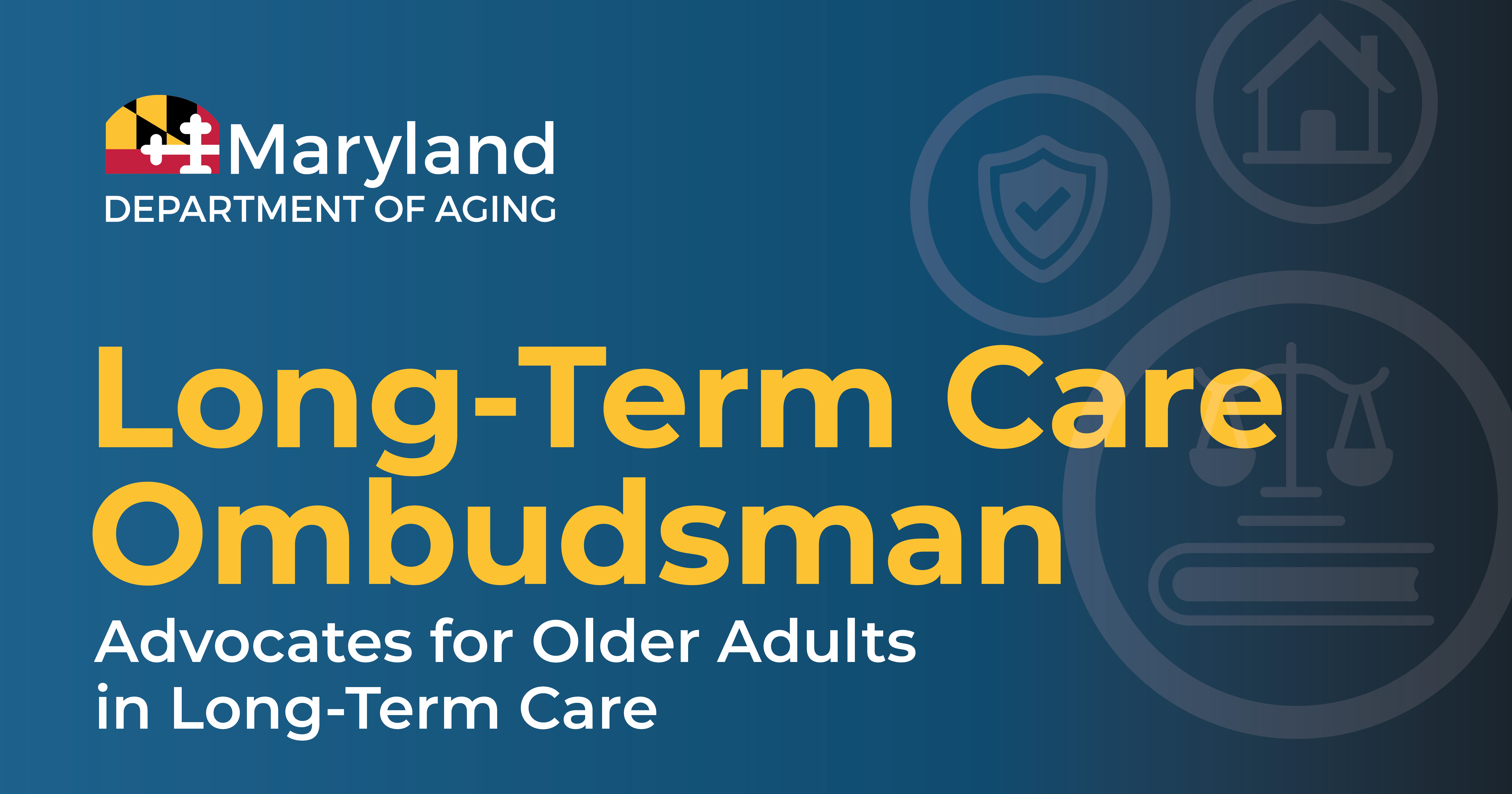Long-Term Care Ombudsman Program
Main_Content

Resident Advocate
The Maryland Long-Term Care Ombudsman Program advocates for the health, safety, well-being, and rights of residents in assisted living and nursing homes. Ombudsmen work at the direction of the resident and only take action with the resident's consent. Ombudsman services are resident-directed, confidential and provided free of charge.
The Maryland Long-Term Care Ombudsman Program also improves the quality of care and increases the quality of life for over 54,000 Maryland residents living in long-term care by advocating for laws, regulations and policies that benefit residents. Ombudsmen visit Maryland’s 1,850 assisted living and nursing homes nearly 7,000 times each year, resolving approximately 3,300 complaints from residents.
About Us
Long-Term Care Ombudsman
- Empowers residents to direct their own lives
- Investigates complaints made by or on behalf of residents
- Listens to residents about their concerns and wishes
- Educates residents, staff and the community about resident rights
- Offers ideas and discusses options to resolve resident concerns
- Advocates on behalf of residents
- Supports resident and family councils
How can I become a Long-Term Care Ombudsman?
Maryland’s Long-Term Care Ombudsman Program consists of the State Office and 19 Local LTC Ombudsman Programs, which are located at Area Agencies on Aging and serve specific regions. Trained Ombudsmen pay regular visits to long-term care facilities within their region to spend time with residents, monitor conditions, investigate complaints, and protect residents’ rights. If you are interested in volunteering, please review the below forms: